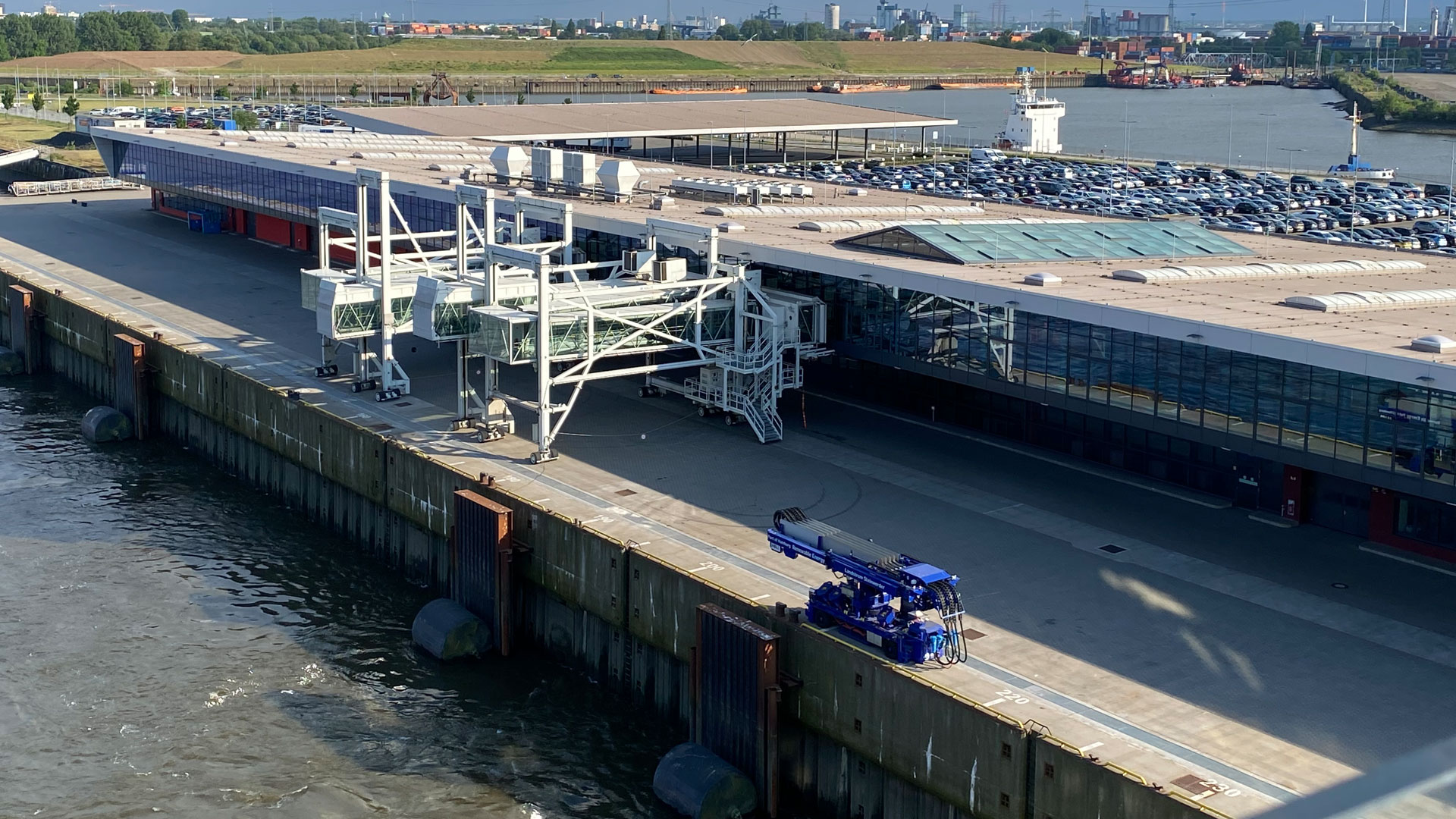“Funding is crucial”
The ramp-up of the hydrogen economy in Hamburg can begin. The Hamburg Green Energy Hub project is receiving significant funding from the German federal ...

By Ralf Johanning
The energy transition has now arrived in full force in the shipping industry. Ships with alternative fuel propulsion systems are increasingly filling shipyards’ order books. Liquefied natural gas (LNG) is still in the lead, but methanol as a fuel is quickly catching up. According to information from DNV’s Alternative Fuels Insight platform, orders for methanol-powered ships in 2023 will exceed those for LNG (130) for the first time, with 138 orders. Eleven ships were also ordered that will run on ammonia. The market is changing rapidly.
At the same time, ports are being asked to make it possible to reliably bunker these fuels. The Port of Hamburg is well on the way to achieving this. To date, 13 ships have received LNG in Hamburg, including a number of cruise ships. But creating the necessary conditions for bunkering has been a long process. “Every bunkering operation requires an exemption from the Hamburg Water Police (WSP), as the Port of Hamburg’s Hazardous Goods and Fire Protection Ordinance prohibits the bunkering of fuels with a flash point below 55 degrees Celsius in the port. This also includes LNG and methanol,” explains Linda Hastedt, Environmental Strategist, Port Energy Solutions – at the Hamburg Port Authority (HPA), adding: “we have a very good working relationship with the WSP and the fire brigade, but we’d like to see this regulation adapted to current and future circumstances.”
After several successful LNG bunkering operations, methanol bunkering followed just a few days ago. The latest example of this is Greenpeace’s Beluga II at berth CC3 at Cruise Centre Steinwerder.
In the future, it will also be possible to do this at the container terminals. The plan is for sea-side bunkering. The HPA is currently working to prepare the identified bunker sites for approval. “We also want to quickly get to the point where container ships will be able to bunker alternative fuels during the loading and unloading process,” says Hastedt.
Alongside its regional efforts, the HPA is working to share its experiences at the international level. As part of the World Port Climate Action Program (WPCAP), members are committed to the decarbonisation of ports. This includes the development of onshore power supply, the establishment of green shipping corridors and the development of infrastructure for bunkering alternative fuels. The ports have worked with the Clean Marine Fuels Working Group of the International Association of Ports and Harbours (IAPH) to develop a Port Readiness Level Tool. This is a self-assessment and communication tool that enables different stakeholders to understand the status of research, development and introduction of new fuels in individual ports around the world. “The tool is structured similar to a questionnaire. Ports can use it to assess how far they have come in terms of their own development. They can then transparently show other stakeholders in the process what is still required,” explains Hastedt.
The Port of Hamburg continues to prepare intensively for the expansion of its bunker facilities. If all goes according to plan, the next bunker sites for LNG and methanol bunkering will be ready for approval in the first quarter of 2025. This will be followed by the preparation of the first bunker sites for the fuel ammonia.
The WPCAP is an association of leading international ports that share best practices and lead the way in reducing emissions from the shipping industry. Its members are the ports of Antwerp - Bruges, Barcelona, Gothenburg, Hamburg, HAROPA PORT (Le Havre - Rouen - Paris), Long Beach, Los Angeles, New York / New Jersey, Rotterdam, Valencia, Vancouver and Yokohama.